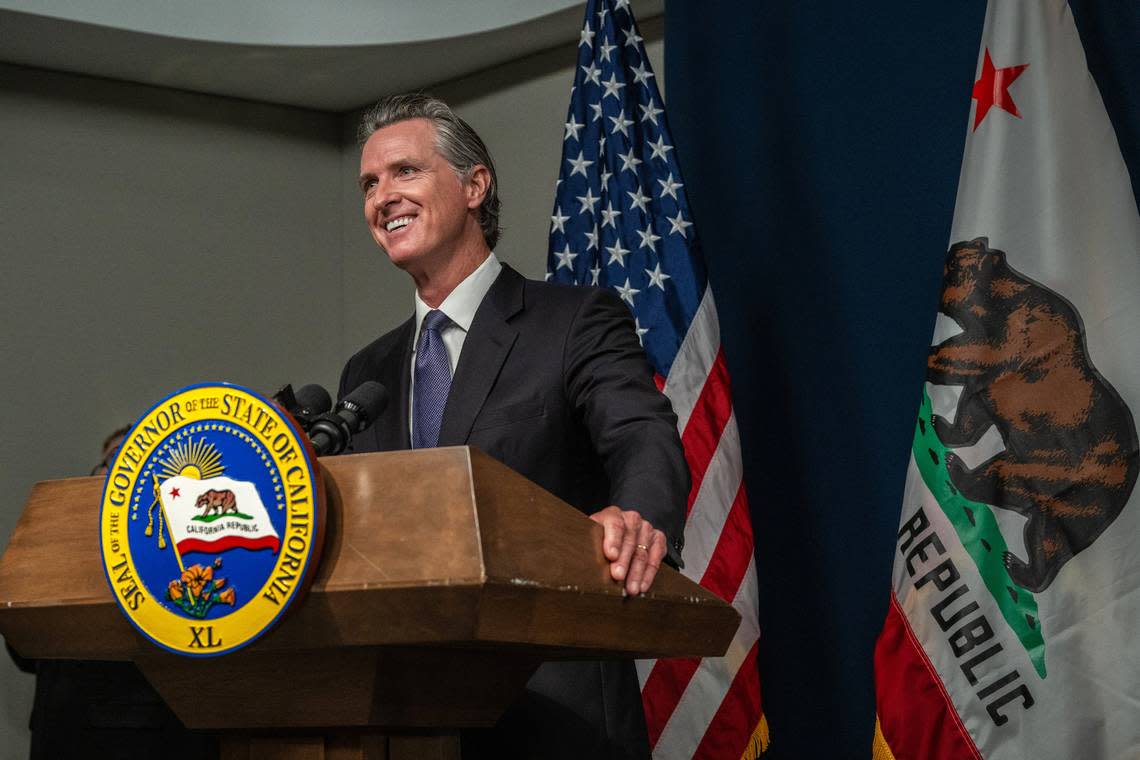California lawmakers like to create rules for everyone but themselves, apparently | Opinion

- Oops!Something went wrong.Please try again later.
Gov. Gavin Newsom and the state Legislature seem to like the idea of transparency for everyone else but themselves.
Earlier this month, Newsom signed Senate Bill 54, which now requires venture capital firms to collect and report data about the founders of the firms they invest in, and said that the bill “resonates deeply with my commitment to advance equity and provide for greater economic empowerment of historically underrepresented communities.”
But as first reported by CalMatters’ Alexei Koseff, on the very same day, Newsom quietly declined to sign legislation that would have documented the diversity of his own, gubernatorial appointments.
Opinion
In his veto message, Newsom said the demographic information required by the bill “would not necessarily accurately reflect the diversity of appointees,” and that’s why he could not sign it. He added that he was also “deeply proud of the diverse group of Californians who now serve our state in senior, appointed leadership positions.’ it’d be nice to confirm that there actually is a diverse group of people in senior leadership positions, but it’s impossible to find that information out.
Even the Sacramento City Council or the Sacramento City Unified School District is held to more transparency and accountability than the state government or the governor.
You might say, just request the information, but the California Legislative Open Records Act, or LORA protects a vast majority of the state legislature’s documents from ever being seen by the public.
Exemptions to LORA include any records pertaining to certain claims against the Legislature until they are adjudicated or settled; personnel files; preliminary drafts, notes, or memos between members and their staff; any records of complaints to the Legislature, its investigations, and its security procedures; and the correspondence between members and their staffs. It even exempts records of buying gas or even windshield wiper fluid for committee-leased cars, under Government Code Sections 9072 and 9075.
The governor and the legislature ought to be beholden to the California Public Records Act, but they’re actually exempt from that, too.
Changing the status quo in California can take decades. A case in point is how long it took the state legislative staff to form a union: Last year, for the fifth time in 25 years, the staff unionization bill came to a dramatic final vote, only to fail in an Assembly committee on the last day of the session. It was, again, revived and finally signed by the governor after multiple decades of near-constant attempts earlier this month.
State senators and assembly members, and even sometimes their staff have, for years, dodged the expectations of transparency and accountability that the California public expects from every other institution.
This is the sign of a toxic culture under the Capitol dome, and it clearly goes all the way to the top. No one is surprised Newsom is maintaining the status quo. The real surprise would be if he did something to reform it.

